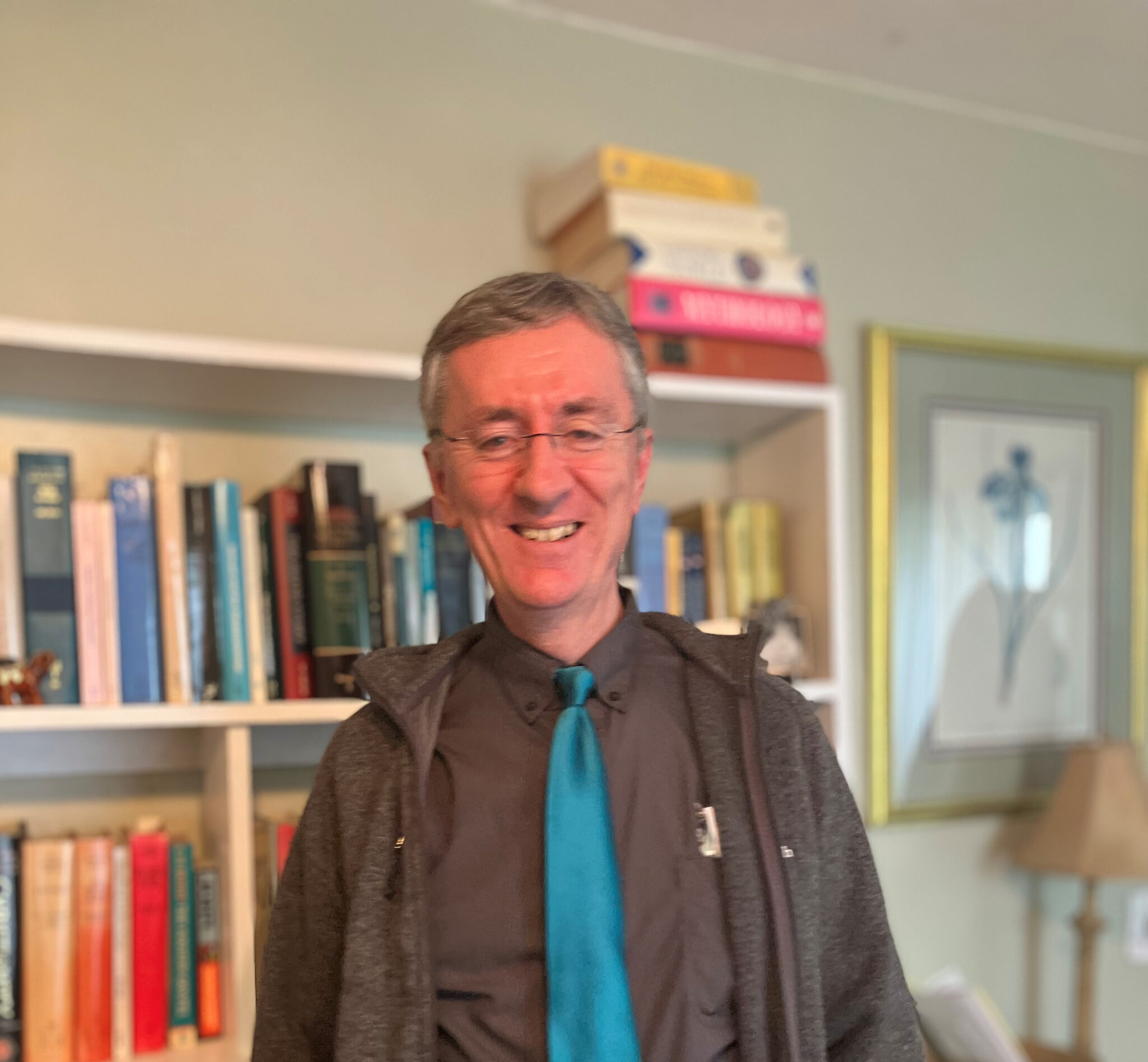Spirituality takes many shapes. For Denis Lynch, it once took the shape of silence. For 16 years, he practiced as a silent monk in Ireland.
Today, it often takes the form of conversation. As a chaplain for HopeHealth’s hospice program, Denis meets with patients at the end of life, discussing their deepest joys, fears and sources of meaning.
How did his path lead here — and how does it shape the spiritual support he brings to patients and their loved ones?
A monk’s life
Denis was born and raised in Cork, Ireland. As a young man, he moved to Dublin, the country’s bustling capital, and began a career as a civil servant. To get away from the city, he’d sometimes take short retreats to a Trappist monastery in the nearby countryside.
“I loved the simplicity of it. I loved the silence,” he says. “I was attracted to the fact that they live by the work of their hands.”
At age 27, he announced to his stunned family that he was joining the order. He became a silent monk, helping to run 800 acres of forestry and farming. Every few hours, the abbey’s bells called him from the farm and fields for prayer.
The physical labor was taxing. “I remember sawing down trees, thinking, ‘This branch is not coming off, but my arm is going to,” says Denis. The silence and solitude were taxing, too. “There was a lot of emphasis on knowing and accepting yourself — all your light and dark parts,” he says. “Which is not so comfortable at all times.”
As the years went on, Denis took on more roles at the monastery, including meeting with visitors who wished to speak to a monk. They’d sit together at a table, or walk side by side through the rolling fields — the visitor sharing whatever was on their mind, Denis practicing a form of compassionate mindfulness called deep listening.
“When somebody experiences being listened to, accepted just as they are, there’s a freeing in that,” Denis says. “More than anything else, the thing I took out of those years is to accept a person as they are.”
> Related: After personal loss, a grief counselor finds her calling
“What really matters”
In the early 2000s, as part of his training for the monastery, Denis came to the U.S. to pursue a masters in spirituality.
Through the program, he was placed for a summer as a chaplain in a trauma hospital. There, he counseled patients and families who were often reeling from crisis – car accidents, gunshot wounds, unexpected emergencies. One of his first assignments was in the middle of the night, meeting with the wife and children of a young man who’d suffered a brain hemorrhage. Before he entered the room, he took a deep breath.
“I remember putting my hand on the door handle and thinking, What am I going to face?” he says. “In many ways, it was one of the bravest things I had ever done.”
Another night, he was called to a man who’d just been told he had terminal liver cancer.
“One of the first things he said was, ‘I have no time for BS. Is that OK with you?’” Denis remembers. “That was perfectly OK with me. These situations pare your humanity down to its basic, to what really matters. If you want to be real, I’m your man.”
To his complete surprise, Denis fell in love with chaplaincy that summer. He also fell in love with his future, now current, wife. He’d never imagined leaving the monastery. But after 16 years, his path led somewhere else. He moved to Rhode Island, and to HopeHealth.
> Related: In the halls of Hulitar: An inpatient hospice nurse opens up
Meaning-making at the end of life
As a HopeHealth hospice chaplain, Denis visits patients at home, in hospitals and in nursing homes to offer spiritual support — in whatever shape that takes.
Many patients and families are surprised to discover what a visit from the chaplain is, and isn’t.
“One of the first things many people feel obliged to tell me, almost apologetically, is that they haven’t been to church in years. Many people don’t consider themselves religious, but they’re spiritual,” Denis says. “I just take people where they are. What are your values? What’s important to you? What’s real to you? We talk about meaning-making: a sense that your life has mattered.”
Many people do talk about religion, of course. Others talk about family or nature. A recent patient opened up about how music had given his life meaning. One was thrilled to pore over memories of favorite U2 concerts with an Irishman.
Others feel ready, in Denis’ safe company, to admit parts of their lives they’d kept hidden, or to share what they’re afraid of in the days ahead.
“We’re sitting across from each other and just being honest,” Denis says. “Sometimes that’s what people need.”
During these visits, Denis is quietly working to understand and accept each person, exactly as they are. It’s a lesson he carries from his years at the monastery, and he still sees it as one of the greatest spiritual supports he can offer.
“I’m not bringing around cures. I’m not bringing around meds for pain. What I’m bringing is something harder to measure,” he says. “I think of it as knocking on doors. Whatever door they want to open up, that’s where we’ll go. We figure out our way from there.”

